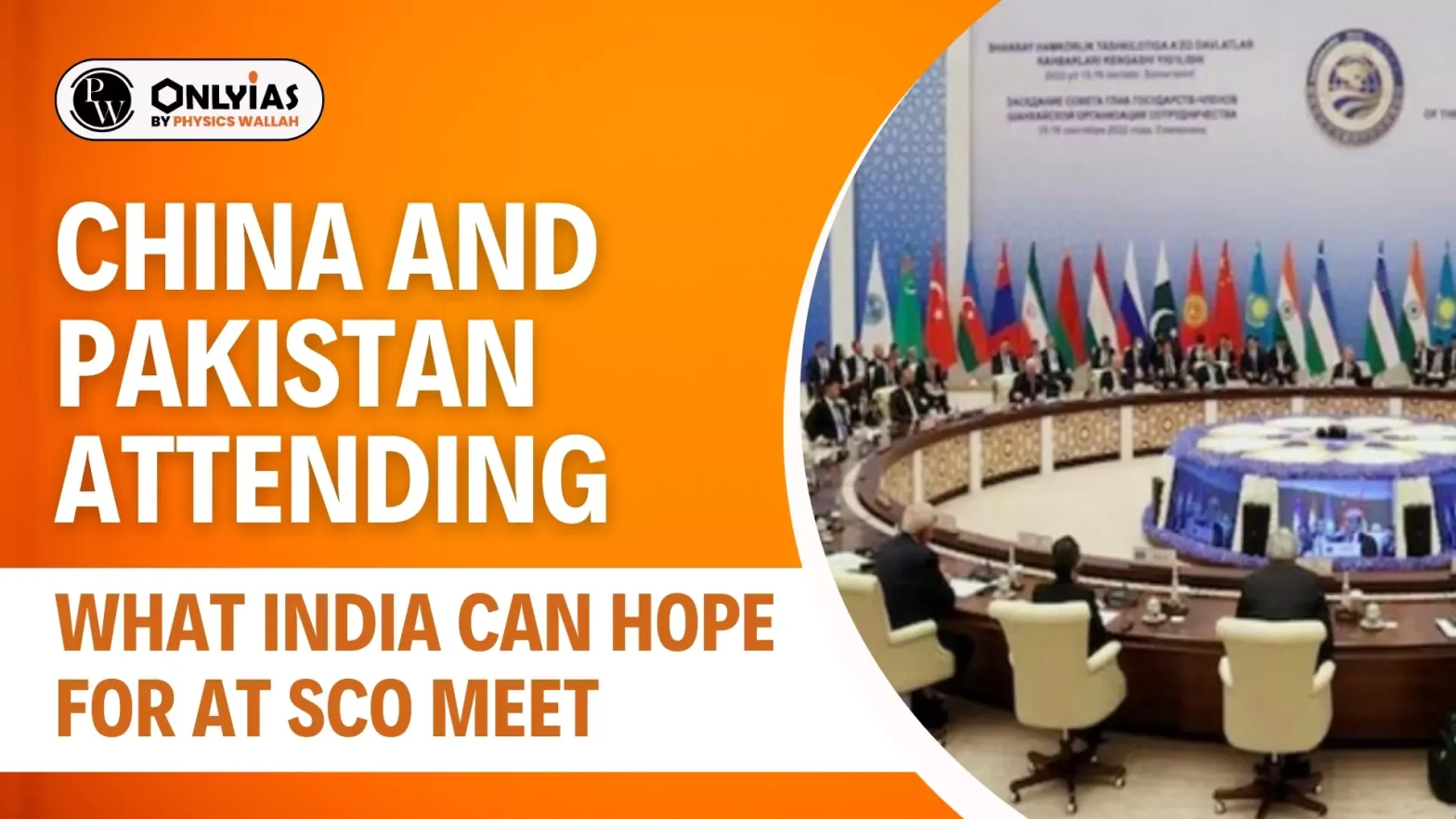External Affairs Minister S Jaishankar will visit Islamabad for the Shanghai Cooperation Organisation (SCO) Heads of Government meeting on October 15-16. This will be the first trip by an Indian foreign minister to Pakistan since Sushma Swaraj’s visit in December 2015.
Timeline of the SCO
- 1996: Formation of the Shanghai Five group, comprising China, Russia, Kazakhstan, Kyrgyzstan, and Tajikistan.
- 2001: The SCO is officially established on June 15 by the members of the Shanghai Five, adding Uzbekistan to the group.
- 2017: India and Pakistan become full members of the SCO.
- 2023: Iran joins the SCO as a full member.
- 2024: Belarus becomes a full member of the SCO.
Enroll now for UPSC Online Course
Importance of SCO for India
- Security Concerns:
- These countries border Afghanistan, where the Taliban is active.
- Terrorism has always been a major focus for the SCO, as it affects multiple member states.
- For example, Russia experienced a major terror attack in March, and following the U.S. withdrawal from Afghanistan, Central Asian nations fear militant groups could spread into their territories.
- India is part of the SCO’s Regional Anti-Terrorist Structure (RATS), which plays a key role in addressing these security threats.
- Energy Resources:
- India imports 85% of its energy needs. Turkmenistan has the fourth-largest natural gas reserves, and Kazakhstan is the biggest producer of uranium ore.
- Military Collaboration:
- India conducts military exercises with Kazakhstan, Uzbekistan, Kyrgyzstan, and Tajikistan, strengthening defence ties.
- Connectivity and Trade:
- The SCO can facilitate better connectivity and enhance trade and investment opportunities for India in Central Asia.
- Countering Chinese Influence:
- The Central Asian region is strategically important for India. By participating in the SCO, India can counter China’s growing presence and influence in the area.
- Balancing Interests:
- India aims to balance its involvement in Western alliances like the Quad, which sees China as a competitor, with its participation in the SCO, which is often viewed as anti-Western.
- Sharing Digital Infrastructure:
- India is eager to share its experience in digitalizing the economy as a global good, which it will promote at the SCO.
- Cultural ties with Central Asia
- Countries like Kazakhstan, Uzbekistan, Tajikistan, and Kyrgyzstan are crucial for India due to strong historical and cultural ties, dating back to Emperor Ashoka and Buddhism.
| Note: Regional Anti-Terrorist Structure (RATS) and its Significance
The Regional Anti-Terrorist Structure (RATS) is a permanent body of the Shanghai Cooperation Organisation (SCO), based in Tashkent, Uzbekistan.
- It promotes cooperation among member states to combat terrorism, separatism, and extremism.
- RATS facilitates meetings and information sharing, helping countries prevent around 500 terrorist operations, according to their reports.
- This collaboration is crucial for enhancing regional security.
|
Speculations About the SEO Meeting
- Conflict Discussions: It’s expected that the Russia-Ukraine war and the Israel-Hamas conflict may be discussed, given that both Russia and Iran are SCO members.
- India’s Initiatives: India, having chaired the SCO last year, will likely advocate for continuing initiatives it introduced, such as promoting traditional medicine, millets, startups, and Buddhist heritage.
- India is also expected to push for discussions on digital public infrastructure, which was a key theme at the G20 summit.
PM’s Approach to the SCO: “SECURE”
- S: Security
- E: Economic Development
- C: Connectivity
- U: Unity
- R: Respect for Territorial Integrity and Sovereignty
- E: Environmental Protection
Check Out UPSC CSE Books From PW Store
Impact of SCO on Bilateral Ties
- India-Pakistan: India holds that talks and terrorism cannot coexist, and the SCO is unlikely to shift this stance.
- India-China: The SCO has facilitated dialogue, such as the 2017 “Astana Consensus” during the Doklam standoff, and meetings after the 2020 Galwan clash, showing its role in easing tensions.
Conclusion
India’s multialignment policy, balancing roles in both the Quad and SCO, is crucial for fostering regional peace. By engaging in the SCO, India can safeguard its strategic interests while acting as a facilitator in resolving disputes and promoting cooperation.
![]() 15 Oct 2024
15 Oct 2024
